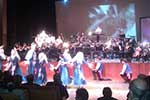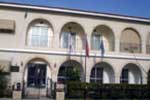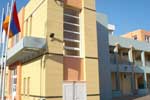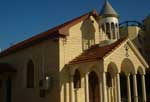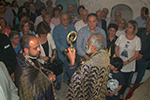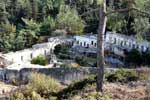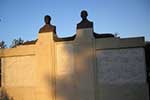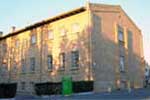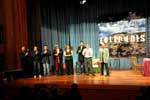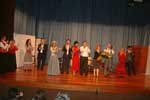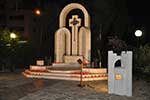Հարութ Սասունյանի սյունակը

TURKISH SCHOLAR EXPOSES ANKARA S VAIN ATTEMPT TO SPLIT ARMENIA FROM DIASPORA
In their persistent efforts to distort the facts of the Armenian Genocide, Turkish denialists resort to all sorts of tricks. Their latest scheme is trying to drive a wedge between Armenia and the Diaspora by claiming that authorities in Yerevan are all too willing to forget about the Genocide and reconcile with Turks, were it not for the "sinister influence" of Diaspora Armenians who constantly undermine all attempts at reconciliation between Armenia and Turkey.
Prime Minister Recep Erdogan, during a press conference in Ankara last week, claimed that "the Armenian Diaspora is plotting. We can see very clearly and sharply that their efforts are aimed at utilizing [the Armenian Genocide issue]. This is so obvious. But I also see that the current administration in Armenia doesn't take part in this."
Significantly, it was Turkish scholar Taner Akcam who exposed the false arguments of all those who share Prime Minister Erdogan's false notion that Armenia and the Diaspora are split on the issue of recognition of the Armenian Genocide. In a recent issue of the Turkish newspaper Taraf, Prof. Akcam wrote a lengthy analysis of Turkish misperceptions and misrepresentations on this issue. He argued against the view that "good neighbor" Armenia and the "bad" Diaspora have opposing views on the Armenian Genocide. Prof. Akcam correctly stated that Armenians everywhere agree that what occurred in 1915 was genocide and feel that it needs to be acknowledged by Turkey. He noted, however, that there are differences among Armenians (regardless of where they live) about the consequences of such an acknowledgement.
Prof. Akcam dismissed the Turkish claim that "the Armenian state has not been very insistent on the subject of ‘recognition of the Genocide.'" Most Turkish analysts wrongly allege, according to Akcam, that Armenia is a very "good" neighbor to Turkey and that it reflects its "goodness" by "refraining from use of the word ‘Genocide' and by not demanding ‘recognition'" during the course of Pres. Gul's visit to Armenia last September. Turkish analysts further claim that "the Armenian state is seriously in the grip of and under the influence of the ‘bad' diaspora." They conclude that "in order to relieve Turkish-Armenian tension, ‘our good neighbor Armenia' must be saved from the ‘bad' diaspora."
According to Prof. Akcam, Turkish analysts falsely claim that "the biggest reason why Armenia has fallen under the influence of the ‘bad' diaspora" is "poorly conceived Turkish policies. As a result, in order to save Armenia from the diaspora, Turkey must relinquish its bad policies and foster ‘good' relations with Armenia. Consequently, Armenia will be able to distance itself from the bad policies of the diaspora, policies like ‘insisting on recognition of genocide.'"
Prof. Akcam categorically refuted those allegations by stating that "when it comes to acknowledging the genocide, Armenia and the diaspora are on the same page. It is improper to draw a distinction between the sides on an axis of ‘those who insist on recognition and those who do not.' It needs to be emphasized right here, right now, that Armenians everywhere agree that what occurred in 1915 was genocide and they feel that it needs to be acknowledged by Turkey."
Prof. Akcam then acknowledged that there may be legitimate differences among Armenians, regardless of whether they live in Armenia or the Diaspora, on such complex subjects as "what does it mean to recognize the genocide?" and "on the issue of addressing an historical injustice, what steps Turkey might take that will be considered sufficient?"
Prof. Akcam then wondered which option Turkey should pursue -- the Japanese or German model -- in confronting its history? The Japanese model, he explained, would entail a "half-hearted expression" of apology. The German model, on the other hand, constitutes "acceptance of all consequences that arise from that acknowledgement, including providing reparations if necessary, would be required. To follow in Germany's footsteps, Turkey would have to identify the events of 1915 as genocide and make serious effort to compensate all who were injured by those events both emotionally and materially." He thus raised the serious issue of bringing "restorative justice" to the victims of the Armenian Genocide.
It is high time that Turkish denialists face squarely the brutal history of their nation and focus their attention on making amends to heal the wounds of the past rather than seeking to blame the descendants of the victims of the Armenian Genocide, be they in Armenia or the Diaspora!
By Harut Sassounian
Publisher, The California Courier




